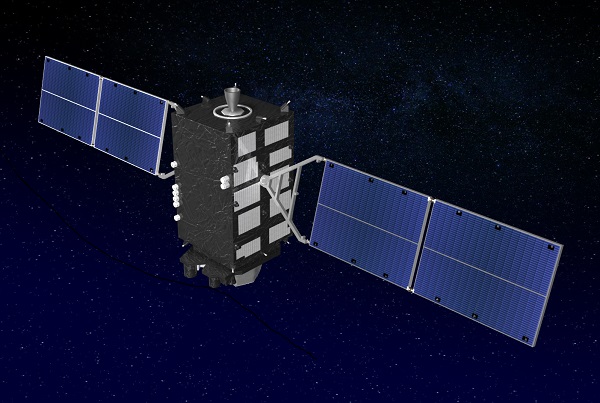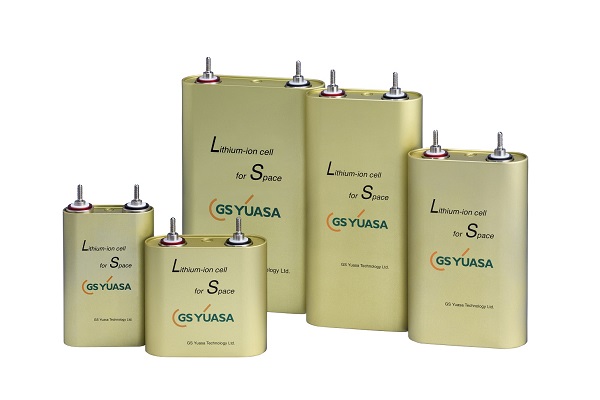GS Yuasa Corporation (Tokyo Stock Exchange: 6674) today announced that space-use lithium-ion batteries manufactured by group company GS Yuasa Technology Ltd. (“GYT”) were installed in the recently launched quasi-zenith satellite “Michibiki-1R”. The satellite, which was manufactured by Mitsubishi Electric Corporation for use by the Cabinet Office of Japan, was launched from the Tanegashima Space Center on October 26, 2021, by the Japan Aerospace Exploration Agency (“JAXA”).
The Quasi-Zenith Satellite System*1 is utilized in coordination with the U.S. Global Positioning System (“GPS”) to provide a highly precise and reliable satellite positioning service*2 that can be used even in mountainous regions and urban high-rise areas. The service is utilized in a wide range of applications including self-driving vehicle systems, marine navigation, and logistics.
The first quasi-zenith satellite, Michibiki-1, was launched in 2010. Three additional satellites (Michibiki-2, Michibiki-3, and Michibiki-4) were launched in 2017 to establish a four-satellite constellation to provide the abovementioned satellite positioning service. The recently launched Michibiki-1R will replace Michibiki-1, and is expected to be able to transmit positioning signals with even greater accuracy.
Since the completion of successful orbital testing in the early 2000s, GYT’s space-use lithium-ion batteries have been used in more than 200 domestic and overseas spacecraft. Based on this track record, and in recognition of their ability to perform in the high-vacuum environment of space for long periods of time, GYT’s batteries have been selected for use in all of the quasi-zenith satellites from Michibiki-1 through to Michibiki-1R.
GYT has been developing and supplying space-use batteries since the dawn of Japan’s space development program in the 1970s. Since then, GYT has continued to contribute to the space development field through the provision of batteries for use in domestic rockets and domestic and overseas satellites.
The GS Yuasa Group will continue to contribute to society through the manufacture of products with the very highest levels of performance and quality for installation in satellites playing vital roles as societal infrastructure.
*1 A Japanese satellite positioning system based on a constellation of satellites in a quasi-zenith orbit (satellite positioning systems provide geolocation information using calculations based on radio waves transmitted from satellites). Japan’s Basic Space Law stipulates that the constellation will be expanded to seven satellites by around 2023.
(Source: Cabinet Office of Japan’s Quasi-Zenith Satellite System website)
*2 Through the transmission of signals at the same frequency and same timing as GPS satellites, this service can be used in coordination with the GPS service to facilitate reliable geopositioning.
(Source: Cabinet Office of Japan’s Quasi-Zenith Satellite System website)
■1. The quasi-zenith satellite “Michibiki-4”

(Source: Cabinet Office of Japan’s Quasi-Zenith Satellite System website)
■2. Cells used in GS Yuasa’s space-use lithium-ion batteries






